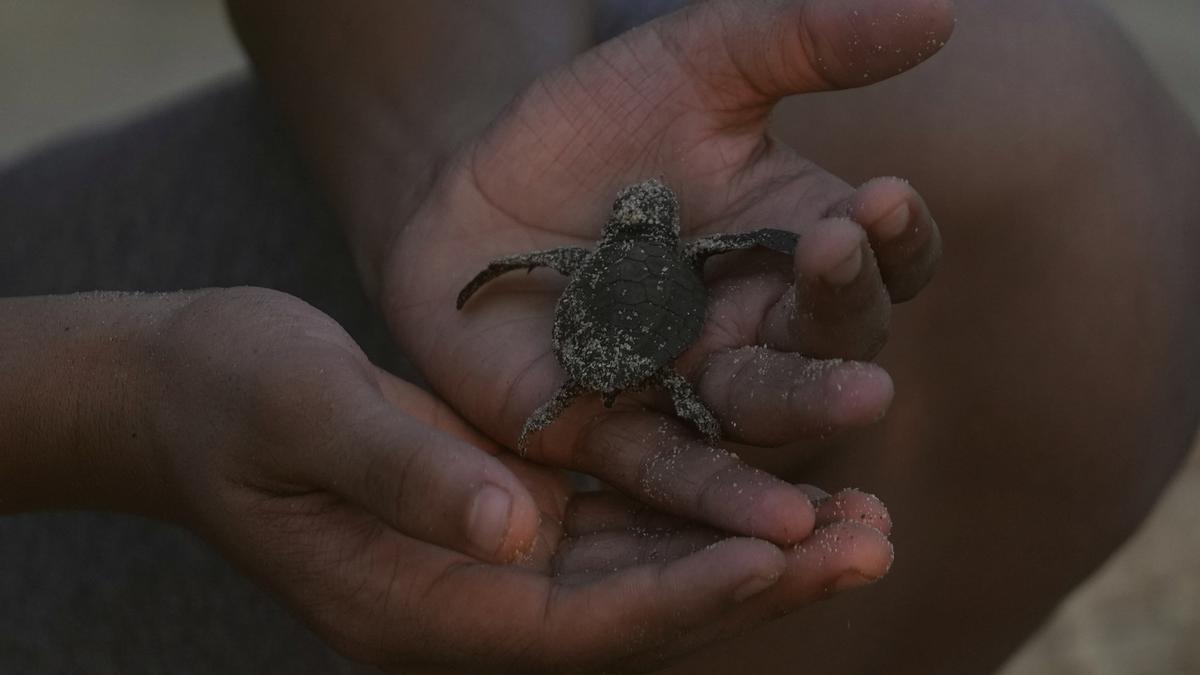
More female hatchlings among Olive Ridleys at Rushikulya due to rise in temperature, says study
The Hindu
Study shows rise in temperature impacting Olive Ridley sea turtle sex ratios in Odisha, with more females found.
Rise in temperature has impacted sex ratio of endangered Olive Ridley sea turtles with a higher number of female turtles being found at Rushikulya River mouth in Odisha’ Ganjam district, says a study based on over 15 years of monitoring the mass nesting of the sea creatures.
The study titled ‘Monitoring sea turtles in India 2008-2024’ says, “Over the last 15 years, we have been monitoring nest temperatures and hatchling sex ratios at the Rushikulya rookery. Determining the hatchlings’ sex through gonad histology helps monitor the primary sex ratios of both solitary and arribada nests.”
Ridley turtles are famous for their unique synchronised mass nesting strategy called arribada (meaning ‘arrival’ in Spanish).
During these mass nesting events, hundreds of thousands of female turtles nest together on a beach within just a few days. Large Olive Ridley arribadas occur only in Central America and on the East coast of India. The East coast population of Olive Ridleys in India is especially interesting as it is considered to be genetically distinct and the ancestral source of Olive Ridleys around the globe, the study says. Odisha is home to two of the largest mass nesting sites – Gahirmatha and Rushikulya.
“This data has been instrumental in establishing the pivotal temperature of the population. Sex ratios at Rushikulya are skewed towards females but not to the extent seen in certain global sea turtle populations,” it says.
The study says estimating the sex ratios of hatchlings produced at this rookery was useful for understanding the future impacts of climate warming. It says as global temperatures rise, sea turtle populations might become increasingly feminised.
“The hatchling sex ratio from arribadas at Rushikulya was found to be about 71% female on average. While some years had extremely female-biased sex ratios due to high nest temperatures, a few years produced male-biased sex ratios,” the study finds.

 Run 3 Space | Play Space Running Game
Run 3 Space | Play Space Running Game Traffic Jam 3D | Online Racing Game
Traffic Jam 3D | Online Racing Game Duck Hunt | Play Old Classic Game
Duck Hunt | Play Old Classic Game











